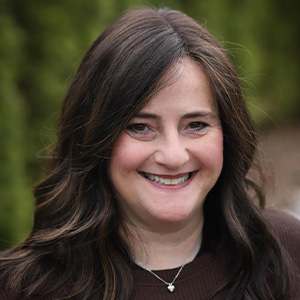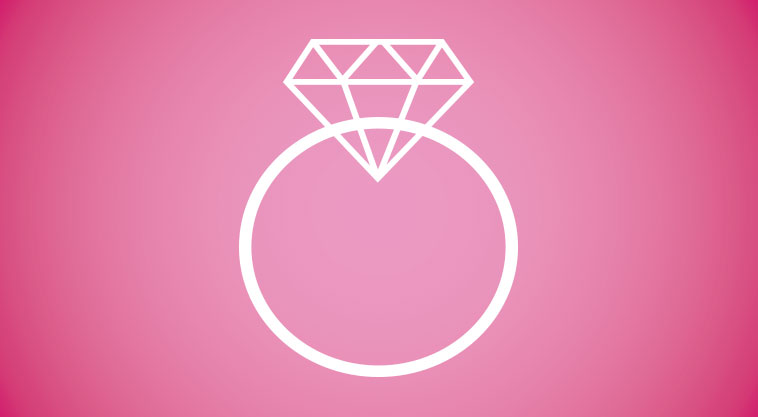“I’m 21 and Have Zero Interest in Getting Married”

I already raised my mother’s family; I currently have little desire to raise another one
I

know this might sound kind of weird, but I really need help figuring this out. Basically, I don’t want to date. I’m 21 years old and have zero interest in getting married. I’m the oldest girl in a family of nine and have always been my mother’s “right hand.”
When I was younger, it was great being told how helpful I was and that my mother “wouldn’t be able to manage without me.” It made me feel proud of myself, and I definitely gained a lot of life skills in the process, which I’m grateful for. But at some point, I became pretty resentful, and, honestly, I’m burnt out. I’m in no rush to jump into a life of dinners and dishes and diapers. I already raised my mother’s family; I currently have little desire to raise another one.
I know this is a terrible attitude, and I’m kind of ashamed of myself. But I want a break. I would like to have some fun and enjoy my life before I jump into more responsibility. I don’t know how to discuss this with my parents without hurting them. But I’m also aware that I’m sabotaging my dating experience because I’m not ready. Help!
Burnt Out
Dear Burnt Out,
Thank you for your candor and for speaking on behalf of many women in your situation. I’m so grateful that you’re aware enough to recognize where your sabotage is coming from. It feels like half the work is done.
So often people behave in ways that make no sense, except that they really do make sense when you understand the purpose those actions serve. One thing is for sure: It makes no sense to keep dating when, deep down, you don’t want to get married (yet).
It makes me sad that you feel ashamed of yourself. You’re having a perfectly normal reaction to a loss, and there’s no shame involved in that. Once you’re able to look at that loss and quantify it, you may find that the intensity of your feelings dissipates.
Raising a large family can be quite overwhelming both physically and emotionally. It’s normal to reach out for help in whatever form you can, and if your mother saw you as a willing and competent partner, it makes sense that she drew you in to help. I’m assuming she didn’t recognize your resentment since, as you say, initially you were flattered and happy to help. The point I’m trying to make is that no malice was meant. That doesn’t change the fact that there were consequences to that pattern, but this awareness can help reduce the resentment.
So what got lost here? I wish you could answer that for us, because for each person that answer will be different. But speaking in general terms, the task of adolescence is identity formation. A healthy adolescence provides opportunities for exploration of self, for development of one’s skills, and for a sense of belonging within a peer group.
It’s healthy for adolescents to develop some of those skills in the context of family by helping out with family responsibilities, etc., but many or most of those skills get developed outside the family as the adolescent spreads her wings and discovers who she is and what her interests and skills are. Things gets unhealthy in the family setting when the child is pulled in as a partner rather than as a helper. At that point, the child loses her opportunity to finish the crucial developmental tasks of adolescence, either due to lack of opportunity and time to pursue her own self, or because her entire identity gets defined by the role she plays in the family.
Try to figure out what you missed. Was it spontaneity? The ability to come and go as you pleased? The feeling of security, knowing that the family needs would be met without depending on you? The opportunity to have fun experiences?
What do you fear you will not have if you get married now?
The problem with suppressing needs is that they demand to be met eventually. If people don’t meet their needs at the appropriate developmental stage, they often meet them inappropriately or unhealthily later in life. In simple terms, if you feel like you didn’t get to play as a child/adolescent, your unconscious mind may demand play later in life, whether or not your life can accommodate it then.
What I’m saying is that you need to listen deep within, clear the cobwebs, and identify your loss. Then examine it to see whether you can meet it in healthy ways at this stage of your life. You don’t mention what your responsibilities are now, but can you find ways to “play” now? Can you take trips with friends? Splurge on a latte? Read in bed? Figure out whatever will feel like it’s filling the hole.
And remember, it doesn’t all have to be done now. Once you have an awareness of what you need, you can find ways to incorporate that into your life even once you’re married.
That should help with healing yourself.
But the question of dating remains. I admire your concern about hurting your parents. I still think that you need to have a candid but kind conversation with them. The same way your self-awareness is serving you, it would also serve them well to know where you stand so they can make informed decisions around your dating. It isn’t fair to anyone involved to have you dating when your heart isn’t in it.
Don’t be afraid of sharing your feelings. They might be hurt, but we can’t allow that fear to block authentic communication. They might actually be relieved to understand your strange behavior. Be kind and nonjudgmental, but help them to understand how your past has shaped your present and what you’ll need to move into a healthy future. Acknowledge your gratitude for what your early responsibilities taught you, as you simultaneously share the cost and pain of being over-burdened.
I think once you, and hopefully your parents, acknowledge your loss and make a plan for reclaiming it, it will free you to move forward.
Please be smart. Don’t allow your resentment to let a good shidduch pass you by. Be open to moving forward with your life even as you fill in the holes of the past. Embrace your feelings and use them as your stepping stone forward!
Sara
Sara Eisemann, LMSW, ACSW, is a licensed social worker and a columnist for inshidduchim.com. She also lectures on topics related to relationships, personal development, and growth. She welcomes questions, comments, feedback, and interaction at inshidduchim@mishpacha.com.
(Originally featured in Family First, Issue 680)
Oops! We could not locate your form.








